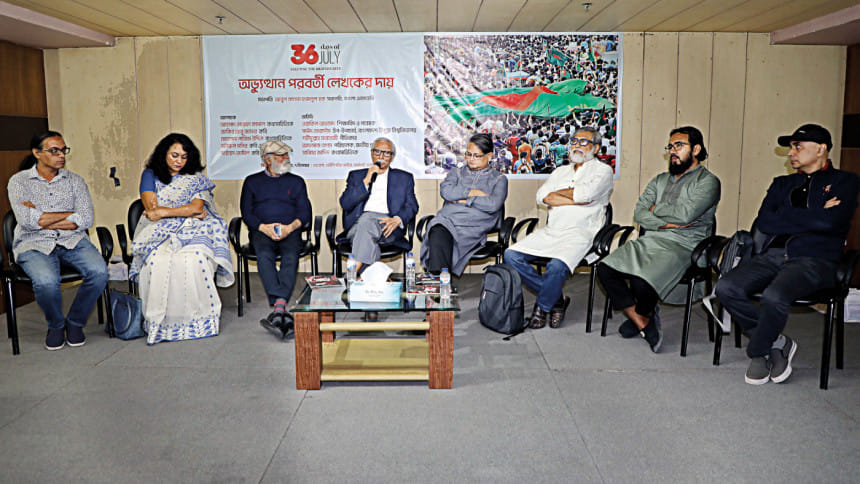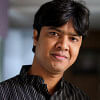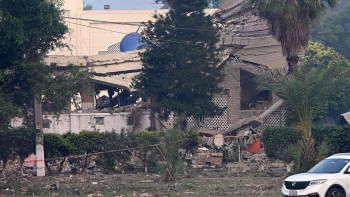The Pen Against Power in the Fight for Justice

On the brink of victory in 1971, as the masses fought for freedom, Pakistanis stained December 14 with the blood of the nation's leading educators, journalists, doctors, and writers. Since then, the day has been marked as Intellectuals' Day, a reminder that true intellectuals, regardless of their beliefs, fearlessly speak and write the truth against injustice. It's important to remember that a society without questions is doomed to fall into darkness. In 1971, the intellectuals took on this crucial role.
Yet, for many years in Bangladesh, a large segment of intellectuals chose not to speak up for the people. Fear, a desire to stay close to power, and the allure of material gain often kept their voices silent. They avoided criticizing the policies and plans of the autocratic regime. This echoes the words of Nabarun Bhattacharya, who once said: "This valley of death is not my country." He continues, "The teacher, intellectual, poet, or clerk who does not seek revenge for these murders in broad daylight—I despise them."
July this year became a month of profound despair for the youth. What began as a peaceful movement quickly turned into a scene of brutal violence. Lives were lost, potential was cut short, yet the majority of university professors, journalists, and editors chose to remain silent. The poet who once wrote "The country rides the strange camel's back" is no longer with us, while those who once spoke out against tyranny either stay silent or exploit the situation, turning into mere court poets.
In public universities alone, there are 15,236 teachers, including 4,661 professors. What keeps them so occupied? Hundreds of students have expressed their frustration at the silence of their academic leaders. Those who stood with the youth during this time are the true source of strength. Since independence, our society has failed to produce another martyr like Shamsuzzoha, as the temptations of power and material gain have prevailed.
At one event, a senior journalist openly declared, "We stand with Sheikh Hasina, ready to do anything if needed," exposing the alignment between journalists and the ruling power, much like the role of the Chhatra League. Yet, where are they now? All have vanished, leaving behind a "marketplace of the blind." Wealth has been squandered, while countless lives are left forgotten. Sycophancy has infected journalism, prompting harsh condemnation from the new generation.
What responsibilities do writers bear in a post-uprising era? To explore this question, The Daily Star hosted a discussion titled "Write to Protest" at the "36 July: Saluting the Fearless" exhibition on December 7. The exhibition featured photographs, videos, and news reports that captured the unwavering courage, resilience, and sacrifices of the student-citizen movement during the July uprising.
The discussants raised a profound question: In a country emerging from 15 years of suppression, what should be the role of a writer in the new era? Additionally, is it solely the writer's duty to speak the truth, be the voice of the deprived, and stand for the nation when freedom is compromised?
The session was chaired by academic and researcher Wakil Ahmed. Panelists included lyricist Shahidullah Farazi, novelists Ahmad Mostafa Kamal, Afsana Begum, Mohammad Nazim Uddin, poet Monirul Monir, and novelist Sabbir Jadid.
Sabbir Jadid shared, "I couldn't say much about Sheikh Hasina's autocratic rule. I wrote stories about RAB's crossfires but couldn't publish them as books. Writers cannot express themselves freely without liberty. We endured such difficult times. We demand freedom to speak and write."
Mohammad Nazim Uddin remarked, "Who should a writer seek freedom from? Freedom of expression is a fundamental right. When it is wdevelopment narratives peddled by the Awami League were lies, and we didn't challenge them. Not everyone remained silent for benefits; some genuinely aligned their ideals with the government. As writers, our duty was to awaken the people's voice. We failed, betraying our responsibilities. Some became silent collaborators of the regime's agenda. This was unacceptable. Now, we must do the opposite. Whoever assumes power must be questioned."
National Book Centre Director Afsana Begum agreed, stating, "Writers are the mirror of society. We are accountable to our future generations to document the truth, provide platforms for dialogue and understanding, and record current realities. Writers' roles must always remain clear. They are the voice of the people, and that voice must never be suppressed."
Poet Monirul Monir questioned, "Have we fulfilled our responsibilities as writers? During a fascist regime, when resistance was most critical, did we truly stand up? Do we, even now, have plans to confront oppression in society?"
Lyricist Shahidullah Farazi paid tribute to the martyrs of the July uprising, saying, "Even children opened our eyes and shamed us. Students sacrificed their lives to safeguard our freedom. What have we, as writers, done for them? Can we write for them? Remaining silent day after day is worse than dying on the front lines."
He added, "The Liberation War was fought for equality, human dignity, and justice. Following the July movement, Bangladesh must be built on the foundations of equality, dignity, and justice."
Bangladesh Open University Vice-Chancellor Saeed Ferdous echoed Farazi's sentiments, stating, "In the future, intellectuals must undergo rigorous self-reflection. Writing against visible enemies is easy; confronting hypocrisy or invisible adversaries is far more challenging. Yet, we must speak and write without compromise."
Ahmad Mostafa Kamal proposed changing the title of the discussion from "The Writer's Responsibility" to "The Writer's Duty Post-Uprising" for greater clarity. He added, "After Sheikh Hasina's departure, the country went three days without formal law and order, yet chaos never ensued. The people protected one another, showcasing our collective ability to safeguard the nation. We must ensure that fascism never takes root here again."
He outlined three urgent tasks for the interim government: dismantle market syndicates, restore law and order, and properly prosecute criminals. He stressed that the public will not tolerate political manipulation by leaders. Once these are addressed, the country should proceed to elections, transferring power to a democratic government.
Concluding the discussion, Wakil Ahmed emphasised the importance of writers in the uprising, stating, "I've stayed home for 15 years, uninvited. I've become disconnected from the younger generation and rely on newspapers to know what's happening. Still, the progress of our youth is astonishing. The success of the July uprising will be written for the future."
Emran Mahfuz is a writer and researcher.
The article is translated by Kaniz Fatema Mithila

 For all latest news, follow The Daily Star's Google News channel.
For all latest news, follow The Daily Star's Google News channel. 



Comments